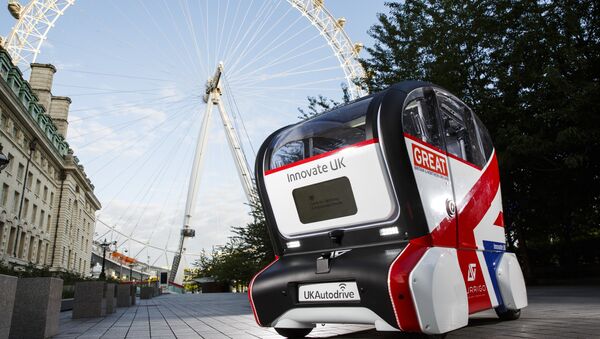Intelligent Mobility has become a key component of the smart city, allowing “greener and more efficient” methods of transport to improve the quality of life for individual travellers, as well as becoming a massive new market worth £1.4 trillion by 2030.
Dr Alan Peters, Innovation Architect for Transport Systems Catapult (TSC), explains the fascinating technologies behind the ‘connected space’, which UK markets are exploring to create jobs and growth across the British economy.
Why Connected Spaces Are Vital to Connecting People
Dr Peters said that simulation-based testing was “a vital part of a wider testing regime” but could be “unreliable and involve huge amounts of human effort in setting up the experiments and analysing the results”.
Catapult aimed to address those issues by “incorporating a richer quality of actor behaviour into the simulating scene” as well as “developing novel methods for automating the testing process”, allowing a more “efficient, targeted test process” to locate weaknesses within CAV decision-making more quickly.
What are the #CatapultUK centres?
Each centre specialises in a different area of #technology, but all offer a space with the facilities & expertise to enable #businesses & #researchers to develop new products & services on a commercial scale.
👉https://t.co/EUXJg4R7IO pic.twitter.com/j14LCebVWS— Catapult (@Catapult_UK) July 17, 2019
Speaking on the connected space, Dr Peters said that cities and towns thrived on the ability to connect people “to resources, opportunities, ideas and to each other”.
The “smooth flow of people, goods and services into and around a place, between them and beyond, by air and sea, is a vital component of economic success”, he explained.
Connected Places Catapult focuses on “placemaking innovations” such as “housing, breathability, planning as well as ‘mobility as a service’ and transport systems”, Dr Peters said while segueing into the importance of CAVs.
Correctly deploying CAVs will help those with travelling issues such as “those who are unable to drive”, he explained, allowing users to “have a more ‘connected’ life” where transport is less of a barrier.”
Project VeriCAV, named from the ‘Verification of CAV’, “is working to ensure these new vehicles are safe and predictable for all road users,” Dr Peters said.
To successfully implement CAVs, Dr Peters said that partnerships were “vital” to the VeriCAV programme, which works with a “world class consortium” of partners such as “Horiba Mira, Latent Logic, the University of Leeds and Aimsun” who were “bringing their respective expertise in simulation and testing” to ensure VeriCAV was successful and delivered “that the industry and society needs”
CAVs utilise 5G, a crucial component for communicating between vehicles where speed and precision were essential. Dr Peters told Sputnik that VeriCAV was “evaluating the core decision making of driverless cars”, namely connectivity.
Connected Places Catapult aimed to ensure that all connected vehicles were benefitting users rather than “promoting a particular technology”, he said.
Cellular 5G and other CAV technologies such as WiFi were likely to help solve CAV-related issues such as alerting vehicles of obstacles around a curve, among others, but such “use cases will need to be proven in research projects such as this one”, he added.
The UK, which hosts the UK Autodrive Project, Centre for Connected and Autonomous Vehicles, among others, is emerging as a leader in global research and development (R&D) on CAVs.
According to Dr Peters, the UK “has a rich selection of leading CAV developers, researchers and enablers, including those involved in the VeriCAV project”, adding that the Centre for Connected Vehicles was “helping to ensure that the UK maintains the right regulatory and research activities to remain one of the top CAV leaders, namely as the market grows over the next few decades”.
Fantastic news for @Appyparking and @Sparkevtech, graduates from our Accelerator programme this week, with both gaining support from Hyundai. https://t.co/O1Qm6yjOQS
— Connected Places Catapult (@CPCatapult) July 19, 2019
Connected Places Catapult is involved in “a number of these research projects and is actively seeking to identify and resolve barriers to the successful development and implementation of CAV systems”, he said.
Safety and testing were “vitally important for successful CAV deployment” and, alongside the VeriCAV project, Catapult was “building a shared library of CAV testing scenarios—The Multi-User Scenario Catalogue for Connected Autonomous Vehicles (MUSICC)—which is already starting to garner interest globally”.




